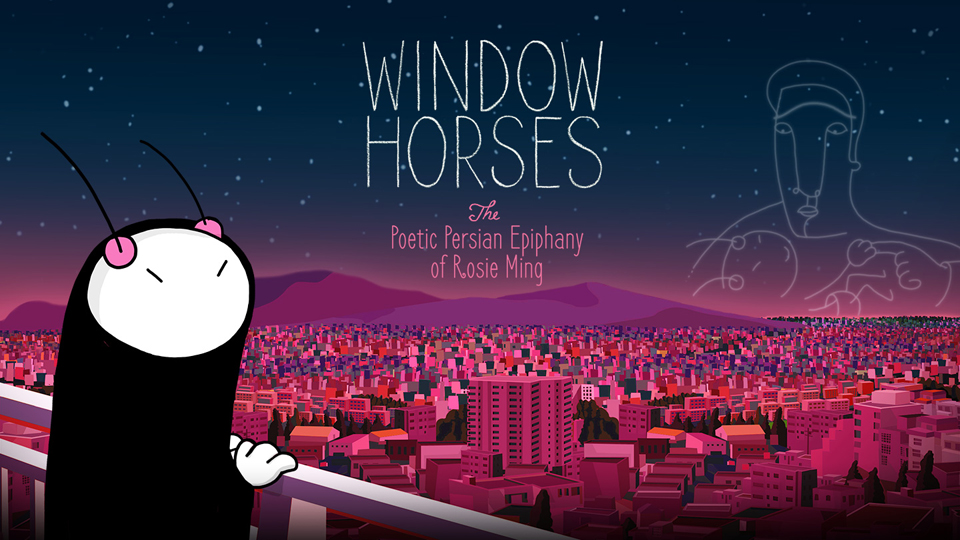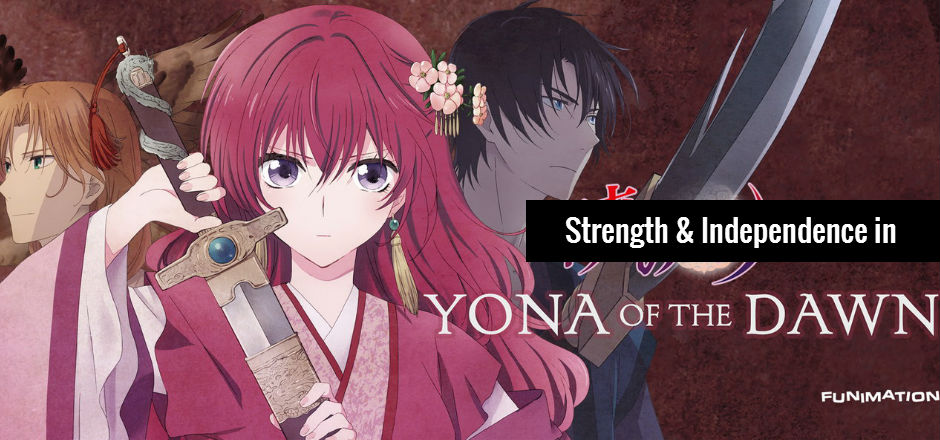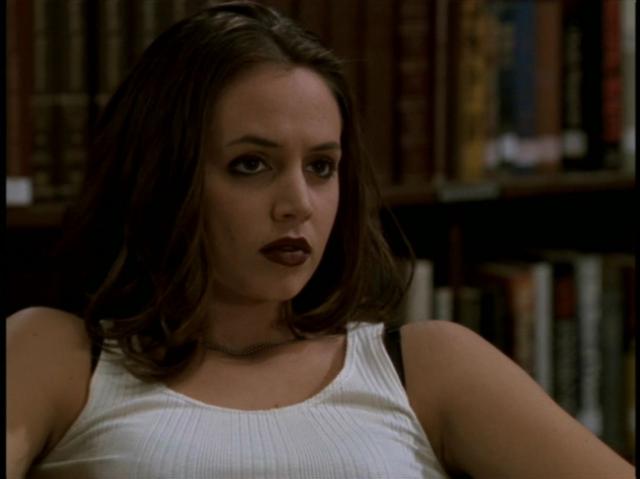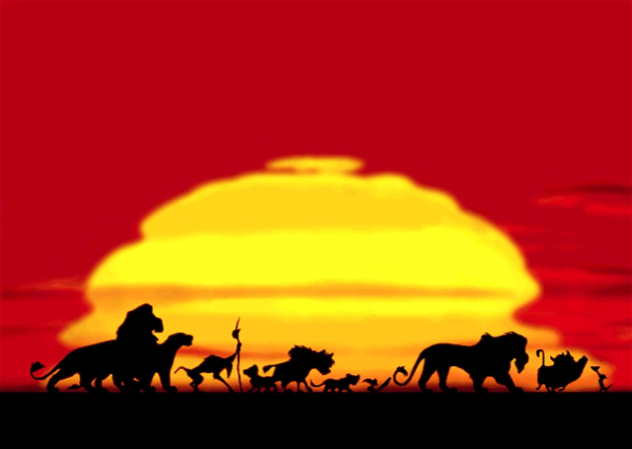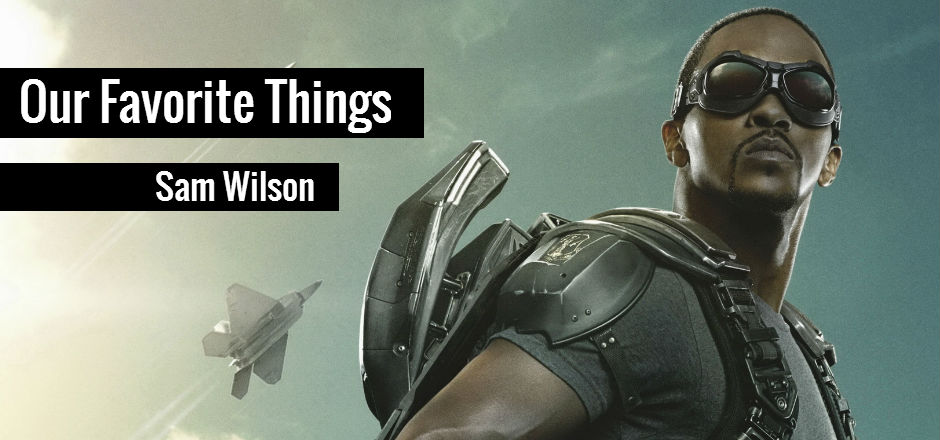I think I cried at least five times watching the animated film Window Horses (2016). While it is a touching story, I don’t think it’s supposed to make you cry that many times, so I was kind of surprised that I was so emotional about it. In retrospect, I think the fact that I’m Persian, along with how beautifully the director Ann Marie Fleming crafted a story about Persian culture, was what caused me to fall head over heels in love with this film.
The film revolves around Rosie Ming (Sandra Oh), a Canadian woman of Chinese and Persian descent, who writes poetry in her spare time. She has a strange, unfounded obsession with Paris even though she’s never been there.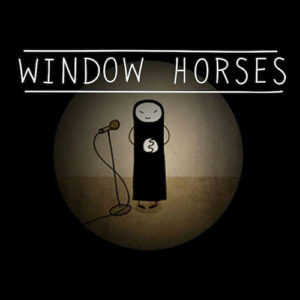 After publishing a book of her poetry, she ends up being selected to go to a poetry festival in Iran, much to her and her family’s confusion. While in Iran, she not only discovers the beauty of ancient Persian poetry, but also some secrets involving her own past.
After publishing a book of her poetry, she ends up being selected to go to a poetry festival in Iran, much to her and her family’s confusion. While in Iran, she not only discovers the beauty of ancient Persian poetry, but also some secrets involving her own past.
The animation in this film was absolutely gorgeous. The colors and designs from one scene flowed seamlessly into the next, and so much of the story was told purely from the images. I also would describe the animation style as both simple and complex at the same time. A lot of the animation focuses on the basics, with the main character being portrayed basically as a stick figure, yet the images are drawn in such a way that you can feel the power behind seemingly simple shapes and colors.
It’s certainly a gift and talent of Fleming and other associated creators to create something so moving without excessively extravagant animation. They instead experimented with several different animation styles, keeping the audience interested with new designs that were both intricate yet basic at the same time. This duality isn’t something I think many people can pull off, so I applaud Fleming for doing it so stunningly.
The story itself was quite powerful in the way it was told. At its heart, this is a film about a young woman learning about her past and opening her mind to understanding the world in a different way. At the start, Rosie was kind of narrow-minded and stubborn, reluctant to open her mind up to anything other than Paris. As the story progresses, however, you see her develop her poetry skills beyond what she could have imagined, fall in love with the elegance of Persian poetry and resolve the feelings of bitterness and resentment she had about her past.
All of this was kind of a slow build-up that you don’t see coming. I went into Window Horses thinking it was just going to be about the history of Iranian poetry with some random Canadian protagonist thrown into the mix. I certainly didn’t think that Rosie’s transformation would leave me in tears. But the film does such a good job of developing Rosie’s personality slowly, from her poetry-related fears to the anger she has harbored in her heart to the confusion she has about her life, that I forgot what my expectations about this film were.
And, like the animation, the storytelling was done in a simple style, too. This film was not out to shock the audience with super vibrant imagery or super dramatic dialogue. Instead, Fleming let the story speak for itself – nothing in this film was screaming out that, “This is important, pay attention to this!” because it didn’t need to. The story had already done its job describing both Rosie’s pain and struggles, along with the incredibly rich, vibrant world of Persian poetry. You felt connected to the story and its characters because Fleming did such a great job showing and not telling.
So when little things would occur that led up to the culmination of Rosie’s storyline, you cried along with her because you already knew how she felt. When hearing the absolute wonder that is Persian poetry or the histories of Persian poets like Hafiz, you cried listening to the words because the story had already made you feel their importance. I think this is the true talent of Fleming’s storytelling – the meaning is behind the words and not in some extravagant display.
As someone of Persian descent with Iranian-immigrant parents and as someone who grew up in Persian culture, I was definitely excited to see this film. The only time you really hear about Iran nowadays is when people talk about the “terrifying Middle East” as if it’s all just the same thing, and the culture of Iran is lost along the way. To see a film discussing the beauty of Persian poetry and absolutely nothing about politics? It’s such a wonderful rarity.
And I think they did a magnificent job portraying Iranian and Persian culture. They cast actual Persian actors to play the role of Persian characters and, when they would speak in Farsi, I could understand the humor in what they were saying (I’m sure all of that was at least mildly confusing to the non-Farsi speakers watching). They represented Persian culture so well, not just in the way they talked about the Persians’ reverence for poetry, but also in day-to-day Iranian life. I’ll be honest, some of my tearful moments came about purely because I was so happy to see some accurate Persian representation.
Window Horses is a film that I wish everyone would see. Maybe I’m biased because I’m Persian, but the storytelling and the animation were so compelling that I’d recommend it to anyone who wants to experience something beautiful. And maybe to hear something positive about Iran for once? That would definitely be wonderful.
